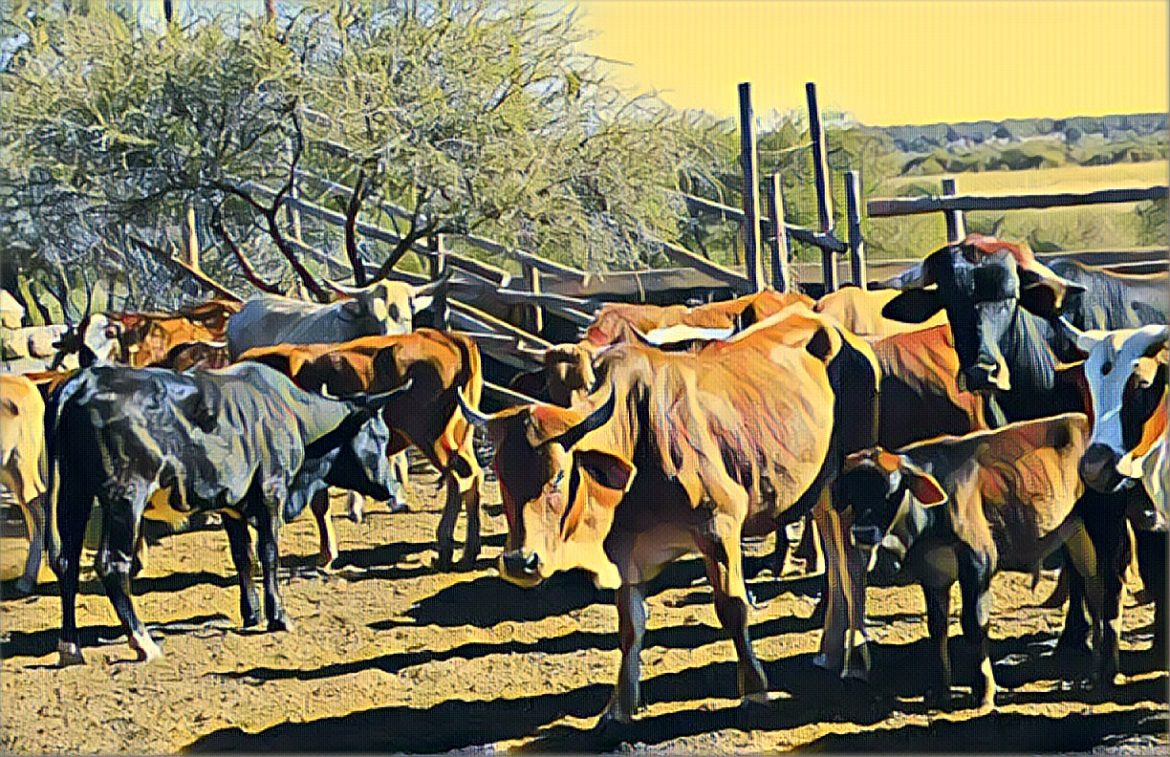In the heart of the Matabeleland region of Zimbabwe, villagers are confronting a dire situation as the impacts of an El Niño-induced drought devastate their livelihoods. The situation has escalated to the point where the community is making a desperate appeal for government intervention to avert starvation and further loss. This appeal underscores the severity of the food crisis, which is not just a local issue but a national emergency, with approximately three million people across Zimbabwe requiring urgent food assistance.
The drought has already taken a significant toll on the villagers’ primary source of income and sustenance: their livestock. Tsholotsho Ward 20, a crucial agricultural hub previously known for its contributions to the national grain supply, has been particularly hard hit. According to Councillor Soka Ngwenya, the area witnessed the loss of over 1,000 cattle last year alone. This loss is not just a number; it represents a devastating blow to the community’s resilience and economic stability. The fear is that this year, the situation could deteriorate even further, threatening the survival of the remaining livestock and, by extension, the community itself.
The response from the government, through the Social Welfare Department, has been insufficient, reaching only a fraction of those in need. Councillor Ngwenya’s ward, with 1,800 homesteads, is a stark illustration of the gap between the assistance provided and the actual requirements of the villagers. The narrative is similar across other wards, where agricultural activities, once the backbone of the community’s livelihood, have been severely impacted by the drought. In Bulilima ward 18, for example, Councillor Land Ndebele highlighted how power cuts have compounded the challenges faced by farmers, disrupting irrigation and further diminishing their capacity to produce food.
The crisis has also laid bare the vulnerabilities in the region’s ecological and economic systems. In some areas, innovative survival strategies such as barter trading, which involved exchanging Mopani worms for essential goods like mealie-meal, have been disrupted due to environmental changes brought on by the drought. The absence of these worms, a valuable source of protein and income, illustrates the broader environmental and economic disruptions facing the community.
Chief Mathe of Matabeleland South Province has pointed out additional challenges in the distribution of food aid, including partisan politics and corruption, which further hinder the effective delivery of assistance to those in need. This has led to calls for an expedited and more transparent food aid registration process to ensure that aid reaches the most vulnerable populations without delay or discrimination.
The situation is further exacerbated by a lack of employment opportunities in the region, with many villagers relying on subsistence farming and small-scale gardening. However, these activities are becoming increasingly untenable as water sources, such as manmade wells, dry up. Plumtree Ward 17 is facing similar challenges, with boreholes drying up and most crops failing due to the prolonged dry spell.
In response to this crisis, some non-governmental organizations (NGOs) have stepped in to provide much-needed relief. For instance, World Vision is distributing essential food items like cooking oil, beans, and sorghum, while another organization is providing financial assistance to the elderly, pregnant women, and families with small children. These efforts, while commendable, highlight the need for a more comprehensive and coordinated response to address the immediate needs of the affected communities and to develop long-term strategies for resilience and adaptation.
The plight of the villagers in the Matabeleland region is a call to action for both the Zimbabwean government and the international community. It underscores the urgent need for a holistic approach to disaster response that includes immediate relief, infrastructure development, and sustainable agricultural practices. As the climate crisis continues to pose significant challenges to vulnerable communities worldwide, the situation in Matabeleland serves as a stark reminder of the human cost of inaction and the imperative for concerted efforts to build resilience against future environmental shocks.
Source: Newsday


